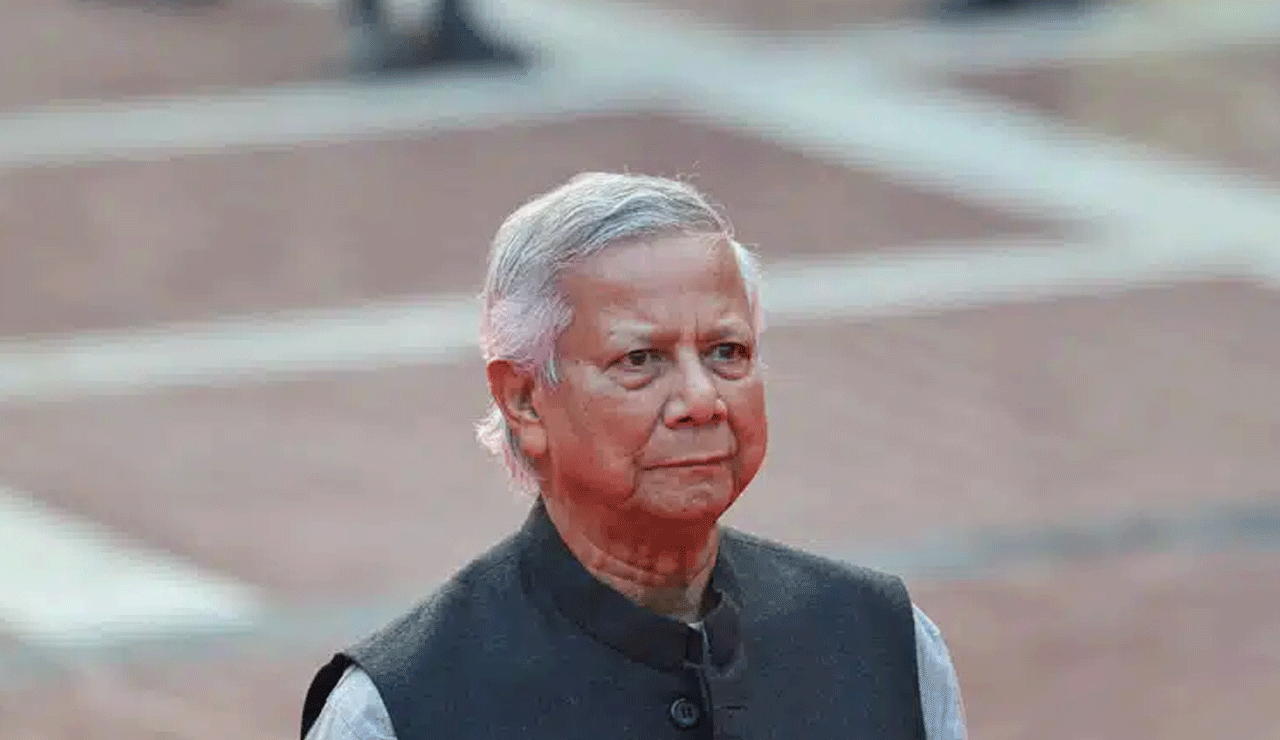Muhammad Yunus Sparks Controversy Again with Remarks on India’s Northeast
Bangladesh’s Chief Advisor Muhammad Yunus has once again stirred diplomatic discussion by referencing India’s northeastern states, commonly known as the Seven Sisters, during a meeting with the Deputy Speaker of Nepal’s House of Representatives.

Dhaka: Bangladesh’s Chief Advisor Muhammad Yunus has once again stirred diplomatic discussion by referencing India’s northeastern states, commonly known as the Seven Sisters, during a meeting with the Deputy Speaker of Nepal’s House of Representatives.
Table of Contents
Yunus proposed a comprehensive regional economic integration plan encompassing Bangladesh, Nepal, Bhutan, and the northeastern region of India, citing shared opportunities in hydropower, healthcare, and connectivity.
“There should be an integrated economic plan for Bangladesh, Nepal, Bhutan, and the Seven Sisters,” Yunus said. “We have more to gain together than apart.”
Emphasis on Cross-Border Hydropower and Healthcare Projects
During the meeting, Yunus highlighted the importance of the Bangladesh-Nepal-India Tripartite Power Sales Agreement, signed in October 2024, which allows Bangladesh to import 40 MW of hydropower from Nepal via India’s transmission network.
Also Read: India Blocks Chinese Media on X for Spreading Pakistani Propaganda
He also announced Bangladesh’s commitment to regional health security, revealing plans for a 1,000-bed hospital in Rangpur to serve patients from Nepal and Bhutan, promoting greater regional healthcare integration.
Previous Remarks on India’s Northeast Being ‘Landlocked’ Resurface
Yunus’s latest comments follow his controversial statement in China, where he described the northeastern Indian states as “landlocked” and emphasized Bangladesh as their only maritime gateway.
“The seven states of eastern India, known as the Seven Sisters, are a landlocked region. They have no direct access to the ocean,” Yunus stated during his visit to China.
“We are the only guardian of the ocean for this entire region.”
He went on to suggest that the region could become an extension of the Chinese economy, inviting Beijing to invest and leverage Bangladesh as a logistics and trade hub for northeastern India.
Indian Economist Sanjeev Sanyal Questions Yunus’s Intentions
India’s prominent economist and member of the Economic Advisory Council to the Prime Minister, Sanjeev Sanyal, responded sharply on social media.
“Interesting that Yunus is making a public appeal to the Chinese on the basis that 7 states in India are landlocked. China is welcome to invest in Bangladesh, but what exactly is the significance of 7 Indian states being landlocked?”
Sanyal posted on X (formerly Twitter).
His remarks echoed a broader sentiment of concern in India regarding Bangladesh’s framing of regional geography in diplomatic and economic pitches to China.
Regional Implications and Strategic Context
Yunus’s statements are being seen as part of Bangladesh’s evolving foreign policy and economic diplomacy, with a tilt toward China-backed infrastructure and trade corridors. The emphasis on being a maritime bridge for India’s Northeast also reflects Bangladesh’s strategic ambitions in regional connectivity and logistics.
However, invoking India’s internal geography in foreign discussions—particularly with China—has sparked criticism and questions over regional sensitivities and sovereignty.
As Bangladesh positions itself as a regional connector between South and Southeast Asia, its messaging—particularly by figures like Muhammad Yunus—will be closely watched in New Delhi and beyond. The call for regional economic integration is welcomed in principle, but the language and geopolitical framing used may determine how cooperative or cautious neighboring nations remain.
